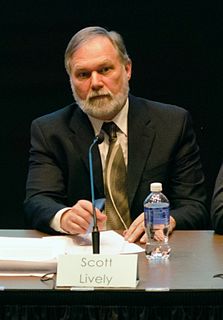A Quote by Vanna Bonta
The word "impossible" is not a scientific term.
Quote Topics
Related Quotes
So my antagonist said, "Is it impossible that there are flying saucers? Can you prove that it's impossible?" "No," I said, "I can't prove it's impossible. It's just very unlikely." At that he said, "You are very unscientific. If you can't prove it impossible then how can you say that it's unlikely?" But that is the way that is scientific. It is scientific only to say what is more likely and what less likely, and not to be proving all the time the possible and impossible.
Obama is clearly a narcissist in the non-scientific use of the word. He is so self-involved, you see it from his rise.There’s not anyone of independent stature around him. There was in the first term, because he needed them to prop him up. But now that he entered a second term, he’s the master of the universe, so there’s nobody around him. He is impervious to outside advice, real advice that he takes.
In the United States, where it has become almost impossible to use "liberal" in the sense in which I have used it, the term "libertarian" has been used instead. It may be the answer; but for my part I find it singularly unattractive. For my taste it carries too much the flavor of a manufactured term and of a substitute. What I should want is a word which describes the party of life, the party that favors free growth and spontaneous evolution. But I have racked my brain unsuccessfully to find a descriptive term which commends itself.
The word "God" is used in most cases as by no means a term of science or exact knowledge, but a term of poetry and eloquence, a term thrown out, so to speak, as a not fully grasped object of the speaker's consciousness -- a literary term, in short; and mankind mean different things by it as their consciousness differs.
This is a tradition of resistance to the term that's as old as the term itself, especially because that term has been used to commodify and reduce black creativity, and also to appropriate and sell it. That's what John Coltrane said in an interview with a Japanese journalist: "Jazz is a word they use to sell our music, but to me that word does not exist." And he's treated as one of the central figures in the history of jazz. So if he rejected it, then why is it weird when I do it? I'm in the tradition!
In the case of some people, not even if we had the most accurate scientific knowledge, would it be easy to persuade them were we to address them through the medium of that knowledge; for a scientific discourse, it is the privilege of education to appreciate, and it is impossible that this should extend to the multitude.
Some people say What's the use of the term if it has to be so fully documented and constrained and footnoted and all the rest. My response to that is: there is no theological word that does not have to be similarly footnoted and constrained: justification, spirit, sanctification etc. Any term can be distorted or domesticated or fly off the handle because of another alien philosophical structure that's imposed on the text and so on. Inerrancy is no different from what we find in every other theologically loaded word.






































